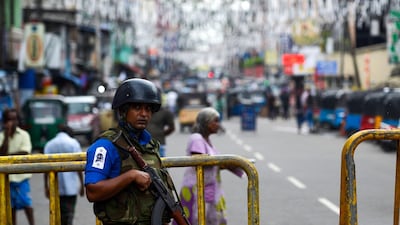Sri Lanka's state-run airline is set to report a loss of up to $160 million (Dh587.6m) loss this year, as tourism in the island nation suffers following the Easter bombings, the carrier's chief executive said.
Cash-strapped Sri Lankan Airlines has cut ticket prices, reduced ground handling charges, and offered discounts to prevent empty seats on its flights since militants on April 21 bombed churches and luxury hotels, killing more than 250 people, including 42 foreign nationals.
"The forecast [for financial year ending March 2020] soon after the Easter Sunday attack is about $160m ... but I'll be happy if I can cap it around $100m to $120m," said Vipula Gunatilleka, the chief executiveof SriLankan Airlines told Reuters.
The airline reported a loss of $168m in the 2018/19 financial year that ended March 31, 2019, he added.
The attacks had also delayed the carrier's scheduled break-even plan, Mr Gunatilleka said.
"My plan initially was [to break-even] in three years. But with the Easter attack, we may need four years," he said.
In March, the island nation's Auditor General noted that the losses and conditions "indicate a material uncertainty that may cast significant doubt on the [SriLankan Airlines] Group's ability to continue as a going concern".
For 10 years, Sri Lankan Airlines was a profitable joint venture with Dubai-based Emirates Airline until the pair split in 2008. Mismanagement in the years since has left it with a debt of about $800m as of end-March.
The airlines' continued losses have been financed through bank borrowings, secured via Colombo's sovereign guarantees.
Prime Minister Ranil Wickremesinghe's government in 2017 failed to execute a plan to sell an up to 49 per cent stake in the airlines to revive it, despite interest from private equity firm TPG and asset management company BlackRock.
Mr Gunatilleka said the federal government is still looking to sell that stake without specifying details.

